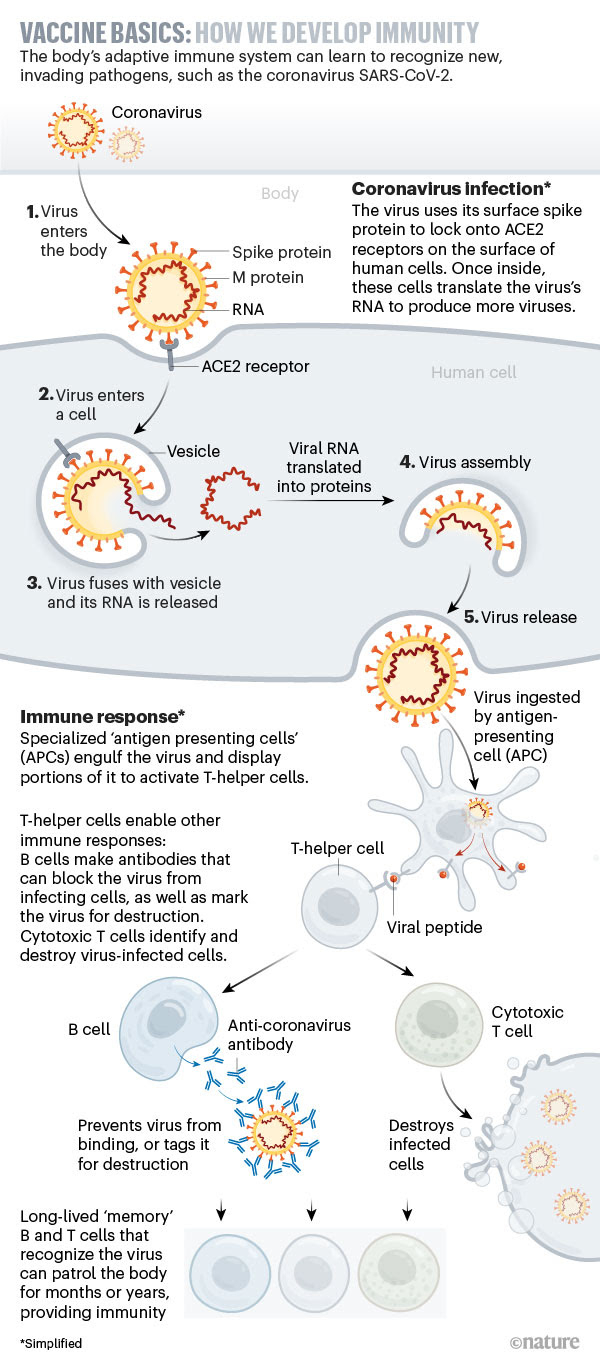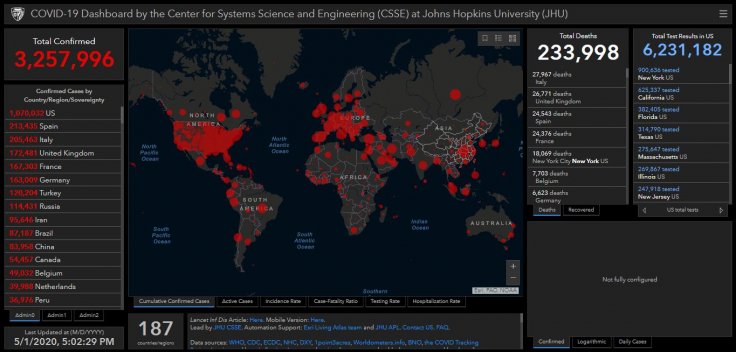Coronavirus has damned the whole world into a meek submission that even the fear of death does not enforce. Entire populations are bound by law to stay indoors as the contagion claims more lives and permanently alters the way this generation of humans have learned to live their lives. Now all hopes hinge around the vaccine - the miracle dose that will set you free again and help you reclaim the life you've known all along. But the direst warning is that it may never happen.
It's a cruel thing to say the coronavirus vaccine may never come at all. But that's what veteran vaccine expert and WHO specialist David Nabarro has done. "There are some viruses that we still do not have vaccines against .. We can't make an absolute assumption that a vaccine will appear at all, or if it does appear, whether it will pass all the tests of efficacy and safety," Nabarro told CNN.
Vaccine against every virus is not possible
Nabarro, a professor of global health at Imperial College London, had made the warning last month as well. "You don't necessarily develop a vaccine that is safe and effective against every virus. Some viruses are very, very difficult when it comes to vaccine development," he told The Observer.

It is possible that the virus will be a constant threat and people will have to learn to get ahead with their social life and economic activities with the virus in their midst, he added. His warning comes even as the most sanguine experts hope a coronavirus vaccine will be available by the fall. For others, the vaccine will take a year to 18 months but it will certainly arrive. Nabarro, however, fears this may never happen.
Even as the virus has claimed nearly 250,000 lives, many experts believe that herd immunity is the final solution. Countries that have grappled with the worst breakouts are gradually easing the lockdowns and restrictions, which they think is the only way to ensure the economy doesn't bite the dust. Herd immunity is attained broadly in two ways - either through universal vaccination or by virtue of the virus infecting at least 70 percent of the population.
At the current rate, the world will be staring at millions of deaths if the herd immunity were to be achieved through rampant infection. That's a scary, though not entirely outlandish scenario. The best course for the world is to get the vaccine and thereby build resistance against Covid-19 in the society.
HIV and dengue are best examples
It's this hope that Nabarro, who is also a special envoy to the World Health Organization on Covid-19, cuts down. And he isn't just fighting a phantom of his mind. There have been many cases in history when a virus has eluded a successful vaccine. HIV is the best example. When the HIV virus made its ominous appearance on the world scene in 1984 with celebrity deaths, the US Secretary of Health predicted that a vaccine for the dreaded killer would be ready for testing in two years. After more than 30 million deaths and nearly 40 years, the vaccine has not arrived.

Another example is the dengue fever, which infects some 400,000 people every year. CNN reported that a major effort to find a vaccine for the disease was suspended in 2017. The move came after French pharmaceutical maker Sanofi said its dengue vaccine, Dengvaxia, could worsen symptoms of the disease in patients.
In yet another example, there is no vaccine for rhinoviruses and adenoviruses. It has been also reported that rhinoviruses and adenoviruses have some symptomatic similarities with the coronaviruses. A 2002 NCIB paper also discusses these two viruses in the context of the coronavirus but it's for the latest studies to draw the conclusions.
Also there is no vaccine to prevent chikungunya. The virus behind this infectious disease was identified soome 70 years ago and it has gone on to infect millions of people across the world. Other examples are Cytomegalovirus, Hookworm infection, Leishmaniasis, Schistosomiasis, etc.
Genetic mutation and vaccine development
Vigorous research is being carried out into the coronavirus and its genetic composition. While scientists are hopeful of finding a vaccine, early reports have also discussed mutations in the virus strain. The New York magazine reported that a recent analysis done in China found that there are now more than 30 strains of the coronavirus. Scientists are studying if the mutation is a cause for concern, and whether that will impede the vaccine development.
A virus's elusiveness, from a vaccine development point of view, depends on the speed with which it mutates. Current evidence may not suggest that coronavirus has high levels of mutations comparable to HIV or chikungunya. The reason why an HIV vaccine isn't here is the very nature of HIV/AIDS virus.
Paul Offit, who co-invented the rotavirus vaccine, explained to CNN the complexities by drawing on the example of the influenza. "Influenza is able to change itself from one year to the next so the natural infection or immunization the previous year doesn't infect you the following year. HIV does that during a single infection ... It continues to mutate in you, so it's like you're infected with a thousand different HIV strands," he says.
These examples merely point out that a vaccine eluding us is not an impossibility. The world has learnt to live with HIV/AIDS in the absence of a vaccine and there are effective antivirals that have removed the death-warrant tag on the infection and given substantial longevity to the patients. Meanwhile, deaths from other diseases like dengue fever and chikungunya are minimal as these viruses have far less virality compared with coronavirus.
The world could afford to not have a vaccine for them but not in the case of coronavirus. It's this potentially devastating scenario that Dr. Nabarro discusses. Hope he's wrong!









